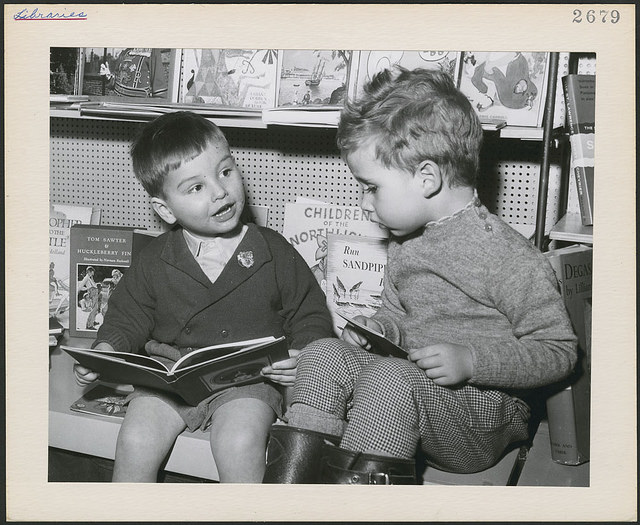
Welcoming our children into the world is one of the most magical moments of our life.
I remember the surreal feeling of looking into this little face that looked just like my own and wishing for all the things that I am sure most loving parents wish for their children—happiness, success, and oftentimes, intelligence.
Then, as time wears on, all our stringent rules about limited screen time and all the engagement we were going to give them fall by the wayside, as we plop them down in front of a Disney cartoon so we can pay bills and keep our household in order.
Life, as with most things, always has a way of creeping in when we’re not looking.
One of the greatest gifts we can give our children is an introduction to mindfulness, and to that end, I have found five beautifully written books that will artfully assist in this process:
Peaceful Piggy Meditation by Kerry Lee McLean
I love this book because it helps to open a conversation with your child about feelings of anger, anxiety, and frustration and offers practical tools to get quiet and shut all of that down for a little while. The thing about this book that impressed me the most is that it tells an entertaining story and it gives practical instructions to help teach small children how to meditate. This one is definitely a winner.
Anh’s Anger by Gail Silver
It is not an exaggeration to say that the premise of this book is incredible. Anh throws a fit because his grandfather tells him that playtime is over and dinnertime has arrived. Instead of Anh’s grandfather going for the typical Western approach of giving Anh a “time out,” or explaining to him what is unfair or disruptive about his behavior, his grandfather encourages him to sit with his anger. His anger becomes anthropomorphic and Anh gradually learns how to exist with the monster that is his anger.
Visiting Feelings by Lauren Rubenstein
Through thoughtful poetry and beautiful illustrations by Shelley Hehenberger, this book teaches children some simple yet powerful emotional distinctions. Emotions are treated as “guests” and invited in instead of the common cultural pressure to ignore or repress them. They are seen as neither good nor bad, they just “are.”
Children, quite naturally, live in the moment and this work takes that organic state and teaches children to explore, feel, and treat all their different feelings equally.
What Does it Mean To Be Present by Rana DiOrio
According to the author, “I hope ‘What Does It Mean To Be Present?’ conveys the importance of slowing down, being mindful, and savoring every moment.” I believe it does this with facility. The illustrations by Eliza Wheeler are compelling and cheerful and before you get to its conclusion you will have touched on patience, understanding, communication, and respect for the natural world. The importance of delivering a message this pertinent to small children in such an entertaining and fun way, can hardly be exaggerated.
Puppy Mind by Andrew Jordan Nance
“My mind is like a puppy, it likes to wander and explore. If I don’t watch it carefully, it goes through any open door.” And so begins the journey into “Puppy Mind,” a children’s book that focuses primarily on teaching youngsters to tame their wild puppy brains.
The illustrations by Jim Durk are mainly “point of view,” where children will actually feel like they are the detached observer and the lessons about breathing techniques act as the “leash” to help calm the child’s wild mind. Most importantly, the book never stops reminding kids to be kind toward their errant thoughts—as this is just as important as reeling them in a bit. This is one of my personal favorites.
I would wholeheartedly recommend keeping these wonderful books in your child’s library at home to help begin a thoughtful conversation about mindfulness. Whether you are introducing “Peaceful Piggy Meditation” or teaching a lesson about the acceptance of our darker and lighter emotions, it is all worthwhile to begin as early as you can.
There is nothing childish about the hope for a younger generation of tolerant and beautiful people.
Author: Billy Manas
Image: Biblioarchives/Flickr
Image: Biblioarchives/Flickr

No comments:
Post a Comment